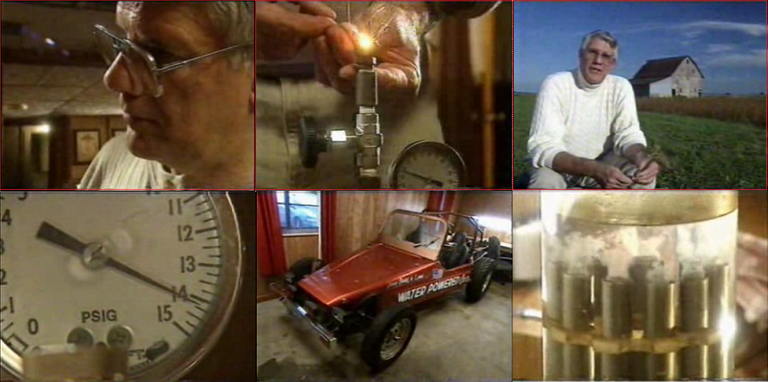
You will find under Stanley Meyer’s Wikipedia entry, a description noting his water-powered gadget to run cars without oil and only on water, as a farce. But what the mainstream media fails to mention, even today, is that water-powered cars have been in existence for many years, are very real inventions, and threaten the very existence of Big-Oil.
Many independent inventors of similar gadgets have seen their genuine work cease suddenly in unusual circumstances; they have been bullied into shelving their work; or have died strange and unexpected deaths. Oddly enough, their ground breaking work disappears into the ether, and like Meyer, is routinely mocked, mainly by oil-sponsored peers or oil companies themselves.

Stanley Meyer’s invention was responsible for making any car run on 22 gallons of water. The vehicle, once outfitted, would travel without the assistance of oil, with salt and tap water as viable engine fuel options.
Over time, Meyer found that other institutions acknowledged and recognized his work, including the Pentagon interest. The British Advanced Energy Institute also acknowledged his work after sending an envoy to research his invention. They later claimed the water-powered engine to be “one of the most important inventions of the century.”
So, what happened to prevent the use of water-powered vehicles? Today, 20 years later, the impact would be notable: less smog and vehicle pollution, with minimal reliance on oil. Oil companies ultimately de-fanged.
Unfortunately, at the peak of Stanley Meyer’s career, when his work was about to be patented, Meyer died in his brother’s arms during a dinner festivity with Belgian investors celebrating their patent success. In 1998, what started as an innocent dinner, Meyer’s mouthful of cranberry juice seemingly caused violent vomiting and choking. As he lay dying in his twin brother’s arms, Meyer’s last words were, “They poisoned me.”
Equally mysterious was the Belgian investors’ response to Meyer’s death, notes his brother, Stephen:
"I told them that Stan had died, and they never said a word, absolutely nothing, no condolences, no questions. I never, ever had a trust of those two men ever again."
The official cause of death was noted on the certificate as a brain aneurysm due to high blood pressure. It disregards his dying words of an attempt to murder him, and that aneurysms of this manner often accompany a loss of speech, severe headache, paralysis (he ran outside before dying), and/or notable movement problems.
Considering the massive impact on the oil industry’s profit margin, and the Pentagon’s attention, would these already large corporations allow a single inventor to take away their strongest source of revenue?
Rumours surfaced that Meyer was offered lucrative deals in the tunes of billions for his patent. Those offering the vast sums of money were the oil companies, desperate to prevent such an invention surfacing for public use. Others interested, who also made financial offers, were the American government and several investment firms.
However, Meyer remained true to the reasons behind developing his invention and passed on the offers. The invention – a vehicle running on water – was developed for the consumer, and to bypass the big oil companies, rather than give them another piece of the growing automotive industry.
As history notes, oil prices continued to hike, and still do today. With Meyer’s invention, how would the world look today?
Meyer was a person who wanted to give power to the people, to give the consumer a choice. A water-run vehicle was not out of the question then, and nor is it now, but for the oil conglomerates grasp on the world.